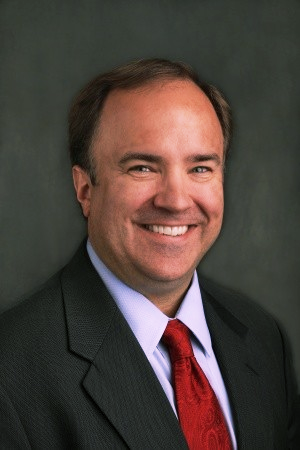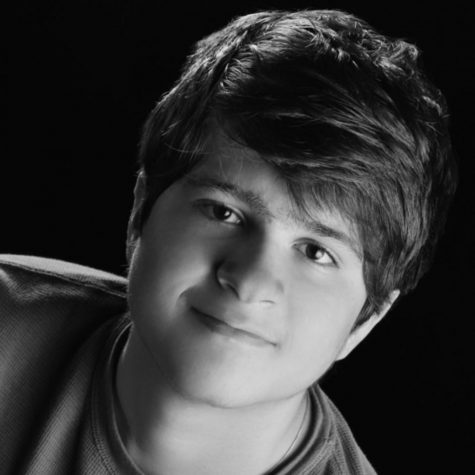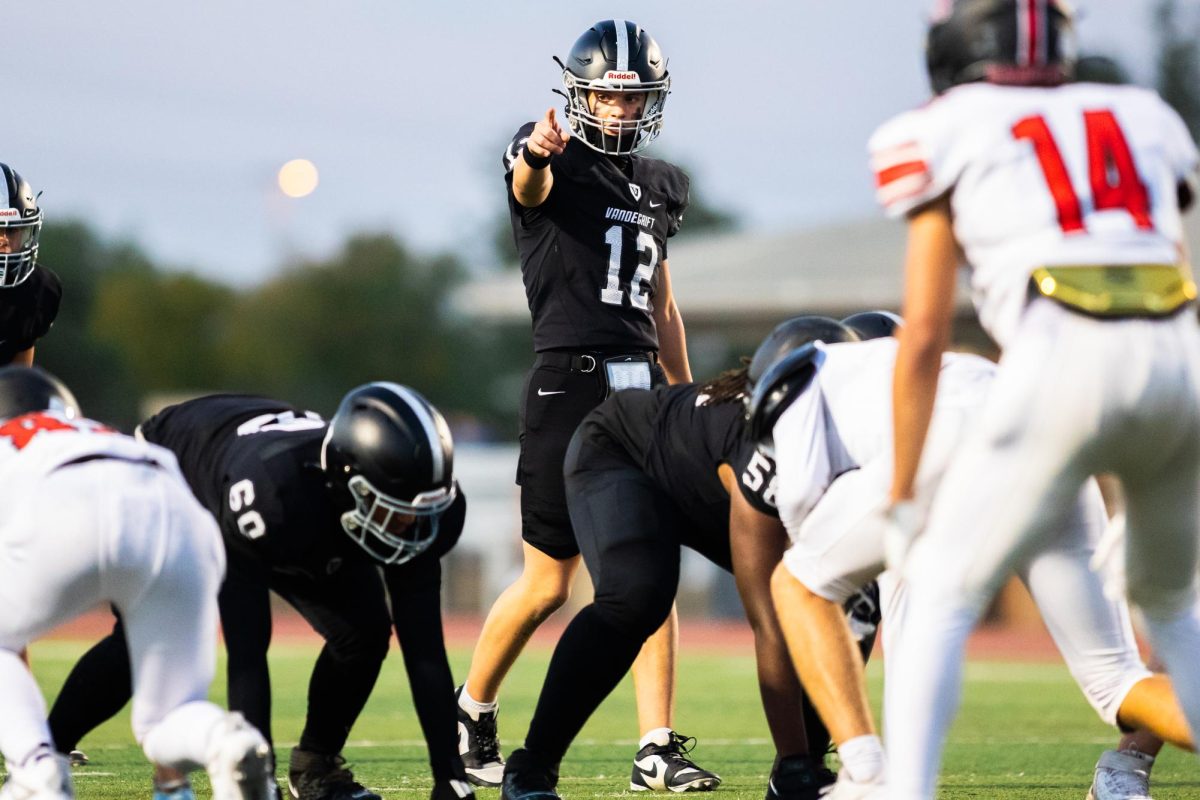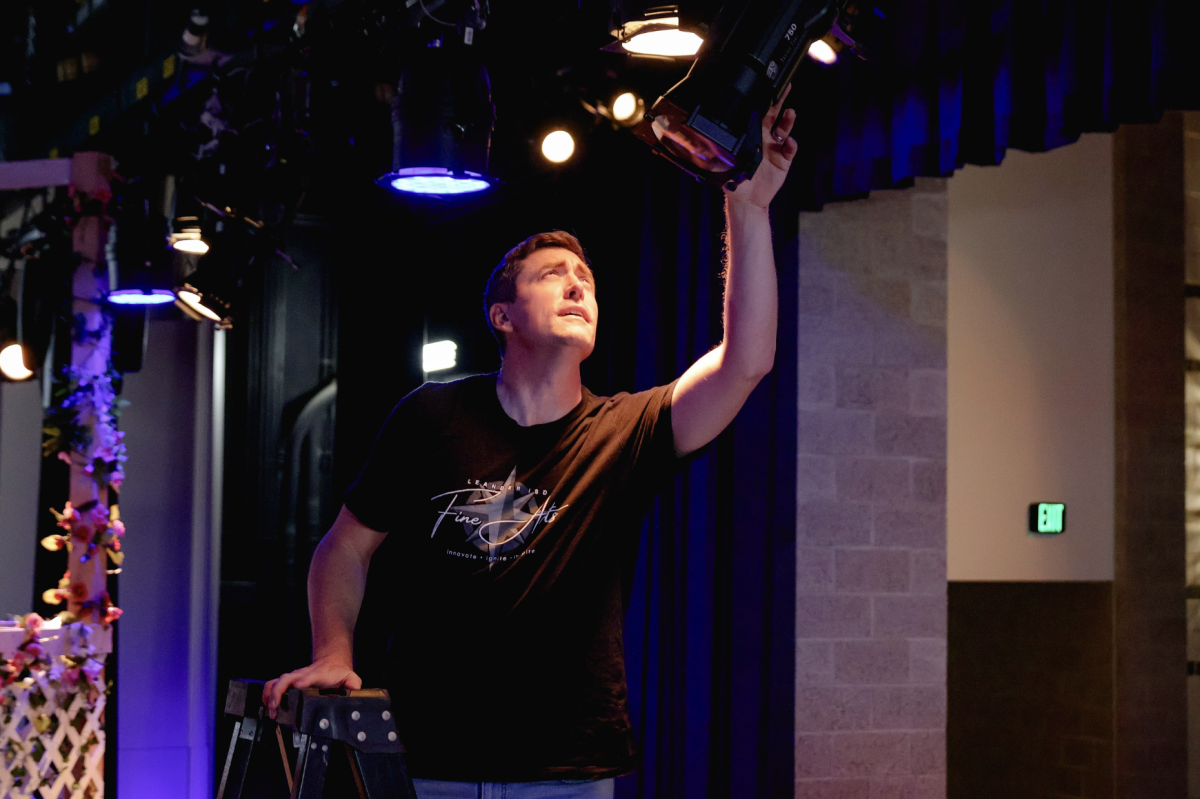An interview with a Presidential Press Secretary

Scott McClellan was the Press Secretary of the United States from 2003 to 2006.
October 27, 2020
Just before the Covid-19 outbreak struck the United States, I had the opportunity to interview Scott McClellan, former Press Secretary to President George W. Bush. As a person who enjoys political science, this was an amazing experiance to hear from an insider within a presidential administration.
Scott McClellan began his political career by working for then-Governor of Texas Bush back in 1998. McClellan is from Austin and during Bush’s presidential bid in 2000, McClellan worked for his campaign and as a result became Principal Deputy Press Secretary for the new administration. He then became Press Secretary of the United States on July 15, 2003.
As Press Secretary and in his previous positions under Bush, McClellan had a front seat view to some of the most pivotal moments of the early 21st Century. He talked about how the Bush Administration was going to focus on mainly domestic policies, then after 3,000 innocent Americans were murdered by terrorists on 9/11, that all changed. The United States was forced to invade Taliban-controlled Afghanistan in order to deny the country as a base of operations to Al-Qaeda, an Islamic Jihadist terror organization responsible for the attacks. This was all part of a new global initiative known as Operation Enduring Freedom, an effort by the United States to destroy radical Islamic terrorism which saw U.S. forces deployed from Djibouti in Africa to The Philippines in the South Pacific.
However according to McClellan, part of Bush’s plan was not just to eliminate Al-Qaeda and its allies.
“In his [Bush’s] view, part of the War on Terror was also to remove other threats to the United States” Scott McClellan said.
The Ba’athist dictatorship of Saddam Hussein’s Iraq was included under this initiative. The United States had already gone to war once with Saddam in 1991 as part of an international coalition to liberate the oil-rich nation of Kuwait from Iraqi occupation. Ever since then, tensions had been running high between Iraq and the United States. Since Bush decided that Ba’athist Iraq was a destabilizing force in the Middle East, the decision was made to invade the country in 2003 under the name of Operation Iraqi Freedom. Coalition Forces would enter the country in the Spring of that year.
The decision to invade Iraq is one of the most, if not the most, controversial decisions taken by the Bush Administration. McClellan stated that the U.S. Government did not take into consideration how they were going to occupy and reconstruct the country after fighting was over, in addition, armed groups were seizing former military stockpiles and beginning to wage an insurgency against the U.S. Forces. In his book called What Happened, McClellen said the invasion was a massive strategic blunder that the administration was not prepared to handle. The subsequent power vacuum allowed groups like Al-Qaeda in Iraq(AQI) to conduct attacks against Coalition forces stationed throughout the country. While these groups have been successfully degraded in their capabilities, new terrorist groups such as the Islamic State(better known as ISIS) and Iranian-backed militant groups have taken their place and continue to ravage the war-weary country.
During his tenure in the administration, McClellan managed to meet many key figures in both American and foreign politics.
“Nelson Mandela comes off to mind right off the bat,” Scott McClellan said when referring to some of the people he has met.
He only got to see Mandela for a brief moment, but it left a lasting impression on him. He also met British Prime Minister Tony Blair, U.S. Secretary of State Colin Powell, Secretary of Defense Donald Rumsfeld and the Dalai Lama of Tibet during his tenure.
In addition, he at one point met Russian President Vladimir Putin. During that time period, McClellan figured out that Putin’s press secretary could actually dictate what questions were asked, pretty much undermining the entire point of a press secretary. He said that despite it being very stressful, it is important for reporters and a press secretary not to see eye to eye so that the administration is held accountable.
“It’s a healthy give and take for our democracy” Scott McClellan said, “Part of the role of a White House Press Secretary is to help the President advance his agenda and advocate for his policies.”
He said that an issue now is that with the proliferation of social media, politicians can send out information without journalists filtering it, this works to undermine transparency between the government and its citizens. This is why he had significant praise for reporters who embedded with troops in Iraq during combat operations, risking their lives so that the truth could be found.
“Making sure what is happening on the ground is matching up with what the politicians are saying backing in DC,” McClellan said regarding the reporters on the front line.
He said that one of the biggest political problems that both political parties are guilty of is the use of a “permanent” campaign approach to politics. This means that politicians will only take a position on an issue if taking that position means they will get more votes. Another problem he says America faced even back in the 2000’s were politicians being more loyal to their political parties then to the country.
“I’m glad they’ve gotten so much better,” Scott McClellan said sarcastically.
McClellan does believe however, that most politicians are good people and are doing what they think is right for the good of our union.
When flying on Air Force One to the funeral of Pope John Paul II, he had the opportunity to meet former presidents George HW Bush and Bill Clinton. McClellan worked for a Republican president, but had kind words for both figures. He described Bush Senior as a very kind man and Clinton as highly charismatic.
Scott McClellan left the White House in 2006 and now works as Vice President for University Affairs at Seattle University. I would like to extend my gratitude to him for taking time out of his busy schedule to have an interview with me, it was an amazing opportunity to learn the inner workings of American policies and what should be expected of politicians on both sides.






